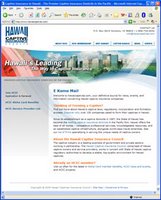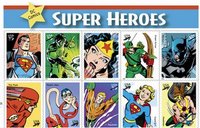A friend passed me a link to some other guy's blog that listed
10 rules about full-time freelancing. I thought it was very good... some of these I had to learn through trial and error myself. It's great to read things like this because you get to see how other people have similar experiences. Now I can see that I'm not always crazy.
I have this other book I read once called the "
The E-Myth Revisited: Why Most Small Businesses Don't Work and What to Do About It" (
Amazon.com). It's also a great motivator for those thinking about starting a business or those that already have.
Yet these 10 rules are very direct and practical. I don't think there's a single rule I disagree with here.
Just in case his site get's taken down for any reason. I'll quote his words here so I can always refer back to this myself for future reference:
1. Err on the side of abundant contact. If choosing among infrequent contact vs. abundant contact with clients, always offer more than less. Currently only 2 of my clients reside in Utah. The rest are scattered abroad. That typically means a remote working environment, in which email, IM, and phone replace traditional face-to-face or in-house interaction. Do whatever each project requires to ensure clients feel cared for and attended to. I’ve even held daily phone calls with clients over an extended period of time when it meant keeping a project on task.
2. Care for the future. It’s extremely easy to get caught up in client work in the present and fail to give proper attention to the marketing of one’s business in the future. Roughly 90% of my work comes as a result my site, and I’d be foolish to fail to author articles or other fresh content. However, my writing has slowed at times because of workload, and it’s a constant battle to ensure I keep a fresh presence. Set aside at least one-half day a week to promoting your business, whether that means cold calling, blogging, direct marketing, or other forms of self-promotion.
3. Care for the present. A charge to care for the future comes only with the harsh reality of caring for the present. It’s impossible to be concerned about future business without first successfully executing what’s already on the table. Work in progress is by far the better revenue stream when compared to potential prospects that may or may not pan out, so treat existing clients with care.
4. Avoid Monday deadlines. A while back I asked many of you to test 37signal’s newly launched Writeboard by answering the question, “Mondays: Excellent or lousy for deadlines?” I’m not certain this is the best use of Writeboard, but the exercise was worth the effort. Some of you argued for Monday deadlines, others against. My take? Unless the thought of spending your weekend behind a PC gets you giddy, you’d be wise to avoid Monday. I, for one, made the leap to freelance precisely to avoid working the weekends. A Monday deadline is anything but elusive of weekend client work. Sure, I’ve had to work my share of Saturdays since making the leap — it’s inevitable at times. But when I have any say in a deadline or the preparation thereof, I avoid Mondays at all costs.
5. Be cautious responding to emails outside business hours. Though I typically check email on Saturdays and evenings, I tend not to respond unless urgent. I’m cognizant of the fact that if I respond on a Saturday at 2pm or a Wednesday evening at 9pm, that gives every reason for others to assume I work any and all hours of the day. Again, I made the leap to avoid hectic work schedules, and I make every attempt to let others know that my availability comes without restriction during normal business hours but on a limited basis after hours.
6. Say ‘no’ as often as you say ‘yes’. I quoted Michael Porter in my ALA article and I’ll do so again here: “The essence of strategy is choosing what not to do.” Realize that every project you say ‘yes’ to inevitably locks up time that may or may not be better spent elsewhere in terms of project revenue, portfolio depth, and overall work satisfaction. It’s a game of opportunity cost, so be sure you’re choosing those projects that maximize a) the talent you offer clients and b) what you take home at the end of the day.
7. Make project expenses justify themselves. Often a project requires expenses for “raw” materials (e.g. stock photography) or additional contractor assistance. When these occasions arise, do your best to anticipate these expenses when bidding, and disclose them accordingly. Should they arise halfway through a project, discuss them with the client to see if a bid addenda is warranted. If not, evaluate the necessity of the expense, if it can’t be included aside from other allocated costs (your time, taxes, etc.), consider alternatives. Don’t rob Peter’s up-front payment on Project X to pay for Paul’s raw materials on Project Y. It’s simply good business practice to force each expense to be paid for by the project it’s tied to.
8. Beware the inevitable check delay. Though I’d been doing side work for over 5 years before making the leap, I don’t know that I was as prepared as I could have been to deal with check delays. Think about it: You submit an invoice. Your contact submits the invoice for payment. The check is cut. The check is mailed. You deposit the check. Your bank may or may not place a hold. The cash is finally available. Typical, right? Well, it’s not so bad when it’s side work, but when it’s your sole income, you better prepare accordingly. I’ve had the invoice to cash-in-hand cycle take up to 60 days before, regardless of net 30, late fees, or other terms I’ve assessed. Have enough cash in the bank to fill in gaps between cycles, or consider alternative payment methods (e.g. PayPal).
9. Be chummy with your point of contact. Speaking of potential client point-of-contacts, if you don’t a) get along well with him or her and b) think he or she is web savvy, you might avoid the project altogether. I can’t stress how crucial a good point-of-contact is in determining the outcome of a project. I’ve been fortunate to have stellar contacts for the duration of my freelancing. Be sure it’s someone you can establish a good relationship with and someone you can confide in driving the project forward wisely and timely.
10. Don’t leap without solid footing. Some of you have sent emails in recent months, most of which began like this: “I’ve been thinking about going solo…” If I didn’t say it in my response to you, I’ll say it here: Don’t make the leap until you’ve got the necessary experience and exposure to make it all happen. I said earlier that my leap was one of faith, and though it was, I was also quite confident the timing was right. I had the necessary experience (portfolio, client roll, variety of projects) and exposure (Google search, incoming links, readership) to leave the ground with solid footing, as ironic as that sounds. Had I made the leap a year earlier, I imagine I’d be back at a day job by now. So leap when you’re confident you’ll land smoothly.





















